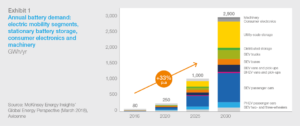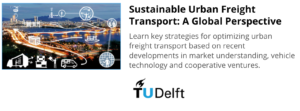Monthly archives: April, 2018
A ban on large truck in cities? Don’t do it!

Now that GreenLeft parties haven become the dominant political party in many large Dutch cities, the coalition governments running those cities have made city logistics a priority. City logistics is supposed to take up less public space, use clean electric vehicles, reduce noise, free up sidewalks for pedestrians, cause less damage and – most of …
June 19, 2018: conference CIVIC and DenCity projects on future dense cities

On June 19 2018, a joint Final Conference for CIVIC and DenCity will be held at Lindholmen Conference Center in Göteborg Sweden about construction logistics. The theme of the day: From vision, through construction, to transport solutions for future dense cities. The day will include exciting results from the projects and opportunities for discussion and networking.
Research: survey on emerging environmental, strategic, and operational challenges in e-mobility
Research: Impact of electric vehicles in collaborative urban transport networks

Transportation is one of the essential services in cities that contribute to the quality of life. As a result, efficient methods for transport planning have become increasingly important. Decision makers have considered collaborative strategies to reduce the overall cost of the supply process and to improve the efficiency and effectiveness of urban logistics systems.
ABN Amro Bank (NL): it is time to get serious about city logistics

Imagine, it’s Thursday 14 August 2025. Following a foggy start, the morning sun breaks through on this summer day. You don’t have to work today, so you decide to walk to your favourite café on the corner to have a cup of coffee, preferably on the terrace. On the way there, you picture yourself sitting …
Books: City Logistics 1 and 2
TU Delft (NL) MOOC on sustainable urban freight transport
UPS: cost of electric delivery van now at par with conventional delivery van
McKinsey: Metal mining constraints on the electric mobility horizon

The uptake of electric vehicle (EV) technology appears to be progressing faster than expected, with industry forecasts routinely being revised upwards. This is in part the result of strong policy stimulus from the Chinese and Western governments, but is also increasingly due to favorable economics as battery costs have tumbled in recent years.




